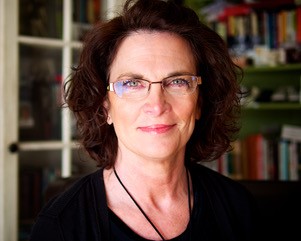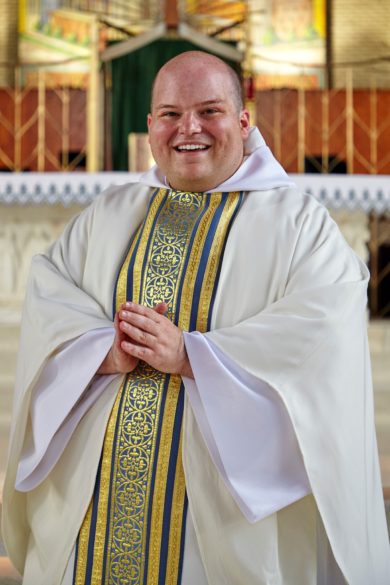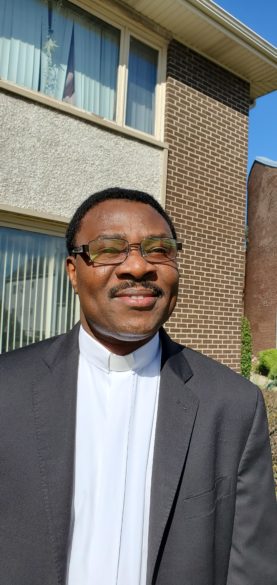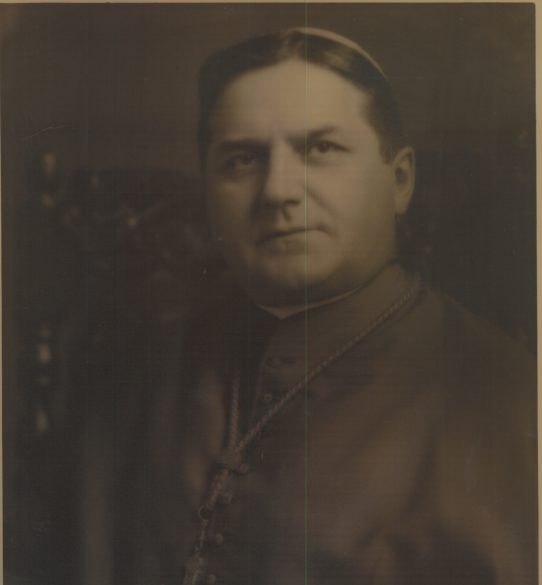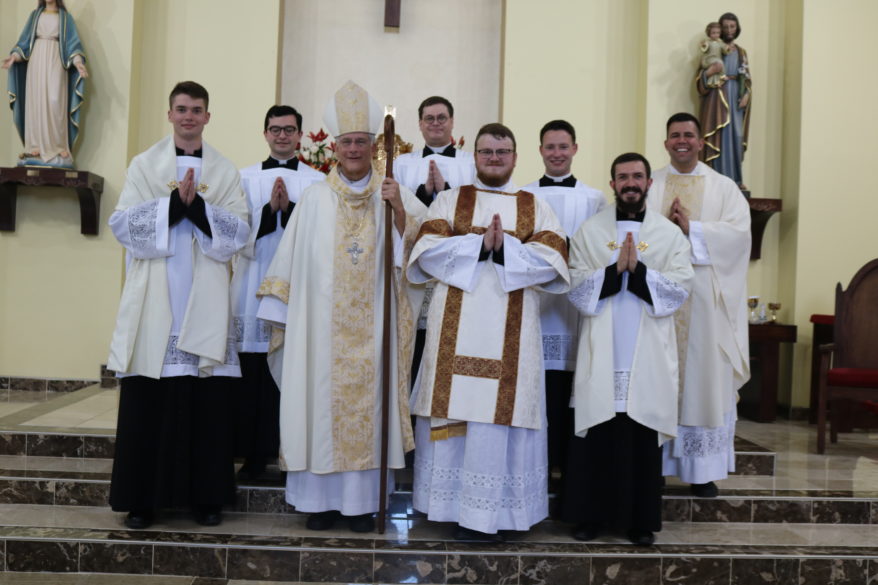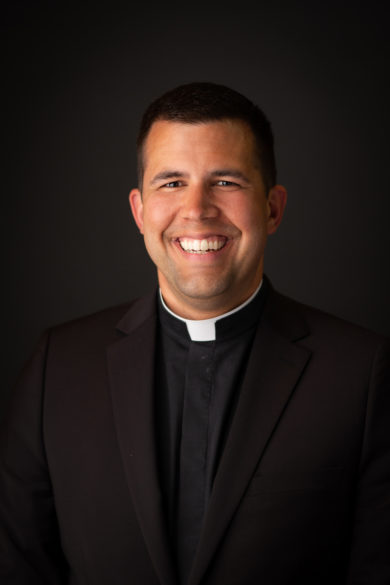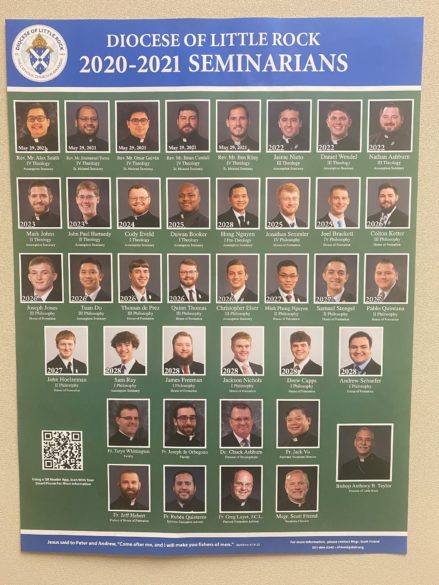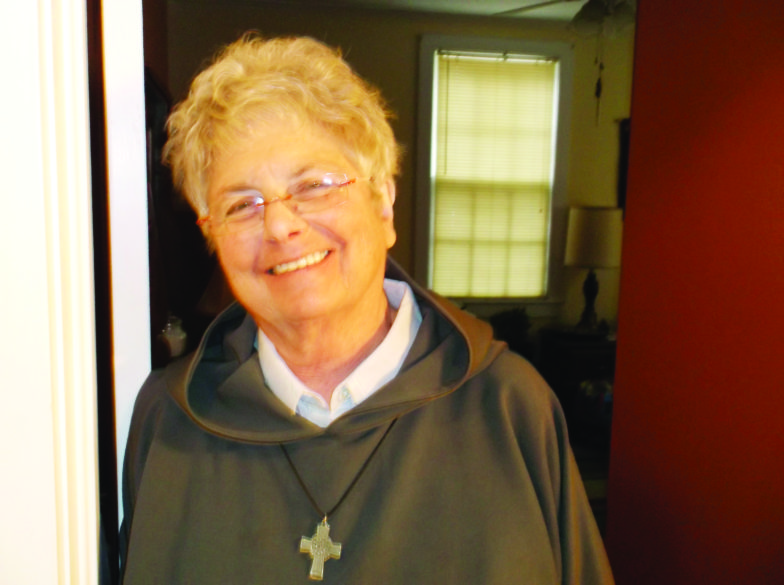SPIRIT AND TRUTH
By Father Aaron Williams
The last segment of our study of the liturgies of Holy Week is the Mass of Easter Day. As I mentioned in an earlier column, historically there was no special Mass for Easter Day, per se. The Vigil was originally envisioned as lasting all-night and then ending shortly before dawn, making the Vigil Mass the Mass of the day as well. However, as time went on and the Vigil grew more and more complicated, it became more common to celebrate a separate Mass on Easter morning with its own proper prayer texts and readings.
This is why apart from the presence of the sequence (Victimæ Paschale Laudes), the Easter Mass is no different from any normal Sunday Mass — having no special rites or particular rubrics as we see in the liturgies during the week. As a side-effect, this serves to underscore the Paschal character of every Sunday celebration. Each Sunday, we revisit the mystery of Our Lord’s Resurrection. It is fitting that when we arrive for Mass on Easter Morning that we feel as if everything is once again as it should be. The Resurrection, after all, is a divine recapitulation — Christ restores creation to its state before the fall, which is why the Resurrection happened in a garden. Humanity fell from grace within a garden, so it is fitting that our restoration to grace would likewise occur in a garden.
If we compared the celebration of Easter Day from the traditional rite of Mass to our modern celebration, we would find very little textual differences. The prayers and readings are virtually unchanged. The modern rite, however, does give the interesting option to use the Gospel of the Road to Emmaus at Easter Masses which occur in the evening, which gives this well-loved passage its own proper place in the lectionary.
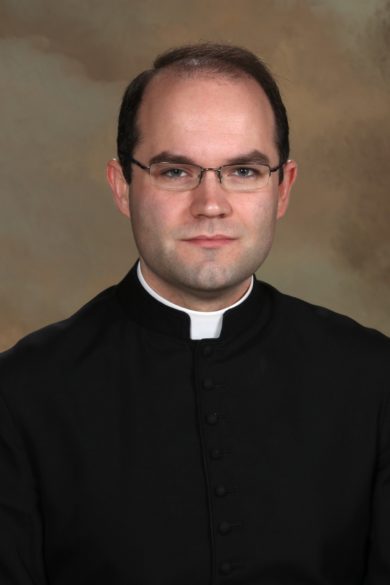
The sequence of Easter Day is a beautiful work of Christian poetry. The text contains a curious passage where the singer asks Mary Magdalene to retell us the story of the Resurrection, making this the only time in any liturgical text where we address someone other than God. Even on feast days of the Blessed Mother, liturgical texts never address Mary directly, but always speak to God regarding the mystery being celebrated. The Easter sequence is the one exception. This, perhaps, can underscore the unique role Mary Magdalene played in the early church as the ‘Apostle to the Apostles’ — announcing to all of the Apostles the news of the Resurrection.
Though our modern celebration of Easter is not particularly unique from any other Mass, there are a few examples from history of some local churches having their own customary rites associated with Easter Day. Perhaps the most significant of these comes from the Medieval English liturgy. The missals of Salisbury and York explain a rite which preceded the Easter Sunday Mass where the priest and ministers first process to the altar which served as the Altar of Repose during the Paschal Triduum. Unlike our modern celebration where the Blessed Sacrament is restored to the normal tabernacle after communion at the Easter Vigil, in the English custom the Blessed Sacrament remained secure at the Altar of Repose until the Mass of Easter Day.
Once the priest reaches the altar, the choir would begin singing the traditional hymn of thanksgiving (Te Deum) while the priest slowly raised the ciborium up from the altar and over his head, as if Christ was literally rising up from the tomb. For this reason, the English traditionally called this altar the ‘sepulcher’ instead of the ‘altar of repose.’
After the elevation of the ciborium, the priest would carry the Blessed Sacrament in procession back to the normal tabernacle — traditionally with the procession proceeded by a banner or image depicting the Risen Christ. We find a similar custom in Medieval Spain, except there it was more common for a single Host to be used rather than a full ciborium.
Some medieval parishes were even equipped with a special tabernacle or pyx which was suspended over the altar by a pulley system. In this case, the ‘elevation’ rite occurred by placing the Blessed Sacrament inside this tabernacle and then slowly winding the pulley until the tabernacle reached its normal height. An example of a tabernacle of this sort can be found in the oratory chapel of the Dominican parish in New York City: St. Vincent Ferrer. This was such a common ritual in European tradition that by the time of the renaissance it became common for churches to have a golden dove suspended over the altar with a small opening to serve as a pyx.
Suffice it to say by the time of the 19th century Enlightenment, this rite was no longer seen as effective as it was on Medieval Christians and most local churches began to drop it from their liturgical texts until by the dawn of the 20th century it essentially disappeared.
(Father Aaron Williams is the administrator at St. Joseph Parish in Greenville.)

